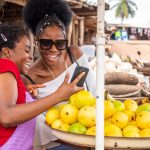Top Things To Know Before Visiting Ghana
Top Things To Know Before Visiting Ghana
Ghana is a beautiful country in West Africa. It is known for its rich cultural history, beautiful scenery, and nice people. If you want to go to Ghana, you should know a few things to make your trip fun and less stressful.
Getting a visa and taking care of your health and safety are just two things you need to consider before traveling to this lively country. In this post, we’ll discuss some of the most important things you want to know before going to Ghana. This will help you get the most out of the journey and have an experience you’ll never forget.
Understand The Currency
Before going to a new country, learning about the local currency is important to avoid misunderstandings and possible scams. Ghana’s main currency unit is the cedi (GHS), which can be split into 90 pesewas. Along with coins worth 10, 20, 50, and more pesewas.
When you get to Ghana, you must exchange your money for GHS at a bank or foreign exchange office you can trust. Large cities and towns additionally have ATMs, but it’s important to check with your bank to see if there are any withdrawal fees or limits when you’re abroad. Some hotels, bars, and shops accept credit cards, but it’s best to have change on hand for smaller purchases.
Remember that some sellers may try to exploit tourists by offering to exchange their money at bad rates or by giving them fake bills. Always carefully count your money and ensure you get the right change before leaving. By being aware and informed, you can avoid problems with cash and have a stress-free journey to Ghana.
Learn the language
English is Ghana’s main language, and people all over the country speak and understand it. It is the language taught in schools and colleges and the language that the government and businesses use. Ghana is a global country with more than 80 ethnic groups, each with its language and accent.
Most people in Ghana speak a local language called Twi, Ga, Ewe, or Fante. Even though you don’t have to learn the local language before going to Ghana, doing so can help you connect with the people there and make your trip more enjoyable.
Trying to speak their language can help you and a Ghanaian get along much better. Ghanaians are usually friendly and open-minded. Understanding the different languages spoken in Ghana and how important language is in Ghanaian society will make it simpler for you to move around and talk to people there.
Avoid drinking tap water.
Ghana’s people are often told not to drink tap water because it can contain harmful germs, viruses, and other pollutants. Instead, people are told to consume bottled water or other cheaply packed drinks, widely available in stores, hotels, and restaurants nationwide. Before buying bottled water, ensure the seal is still there, and the water comes from a trusted source.
Brushing your teeth and cleaning your face with bottled water is also a good idea. You don’t have to drink bottled water to stay healthy and hydrated on your trip to Ghana. You can also do other things to keep yourself safe and healthy. You can go to Ghana without problems if you are careful and take safety precautions.
Use cash for online taxis like Uber and Bolt.
Paying with cash is common when employing a ride-hailing app such as Uber or Bolt. Even though credit and bank cards can be used to pay for these services, many consumers pay in cash because it’s easier and more convenient. To pay with cash, choose “Cash” when you schedule your ride on the app. It’s important to know that Uber and Bolt prices in Ghana are usually lower than in other countries.
This makes them easy to use and a good way to get around. Still, it’s an excellent plan to double-check the rate of the driver before you start your trip and to be aware of any possible surge pricing or extra fees that might be added during busy times. In Ghana, you can pay for Uber and Bolt rides with cash instead of a credit or bank card for a simple and useful way to get around.
Get a local telephone number.
If you plan on traveling to Ghana, you should get a phone number there. Having a local number may make it easier to talk to locals, make plans, and use important services when visiting. You can get a local phone number in Ghana by buying a prepaid SIM card from a big mobile networks service provider like MTN, Vodafone, or AirtelTigo.
You can get these SIM cards for free at airports, mobile phone shops, and other shopping places nationwide. To use your SIM card, you must give your information to the network provider and show proof of who you are, like a passport or national ID card. After activating your SIM card, you can add credit and data using scratch cards, mobile cash, or online payment.
Don’t underestimate Accra traffic.
Don’t forget how crowded Ghana’s biggest city, Accra, can be. There is a lot of traffic in Accra, particularly during rush hour and other busy times. Accra’s roads can be hectic when there is a lot of traffic, checks, and not enough traffic lights or signs that are easy to see.
This makes it hard to get around the city by car or public transportation, especially if you don’t know the area well. To avoid getting stuck in traffic, carefully plan your trip times and routes and give yourself extra time for delays and unplanned changes. Using a ride-hailing service like Uber or Bolt can save you the trouble of driving in traffic or looking for a parking place.
If you must drive in Accra, you should be patient, stay alert, and always know what’s happening around you. Always buckle up, follow the rules of the road and traffic signs, and be ready for rapid stops or changes in direction. You can get around Accra safely and effectively and enjoy everything this lively and diverse city offers if you know how the traffic works and take the necessary safety steps.
Police will probably stop you.
Often, police stops happen at night in Ghana, but they can also happen during the day. Officers may search your car randomly, ask for your ID, and look through your bags. It’s best to let these searches, which usually take five minutes, happen. In Ghana, it is common for people to be asked to “dash” police officers, a code word for giving them a tip.
You may give it or not since it’s usually only Ghc10 to Ghc20 (US$0.95 to US$1.95), but doing so could make the difference between a five-minute stop or a 40-minute stop. Most of the time, running into the cops isn’t a big deal in Ghana. When you talk to a cop more, they generally soften up and become friendly.
Watch Your Things
Pickpocketing and other small-time thefts, which happen in every country, might be your biggest worry in Ghana. Pickpocketing is common in places like Osu, Madina, and Makola Market, which are full of people. Protect your bag in the path of you away from the roadside to keep it from getting stolen.
Don’t carry around a lot of cash. Keep an eye on your phone, and always know where it is. In Accra, people on foot or motorbikes have said their phones have been taken from them. Don’t use your phone to take pictures or movies while hanging on a car window.





